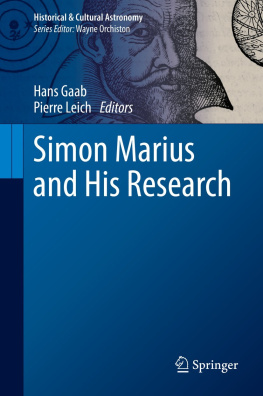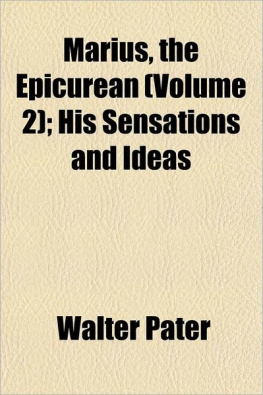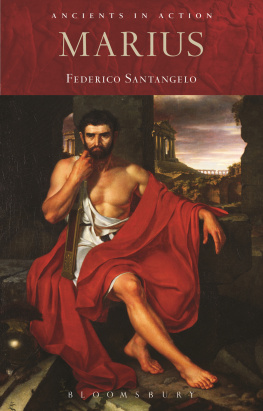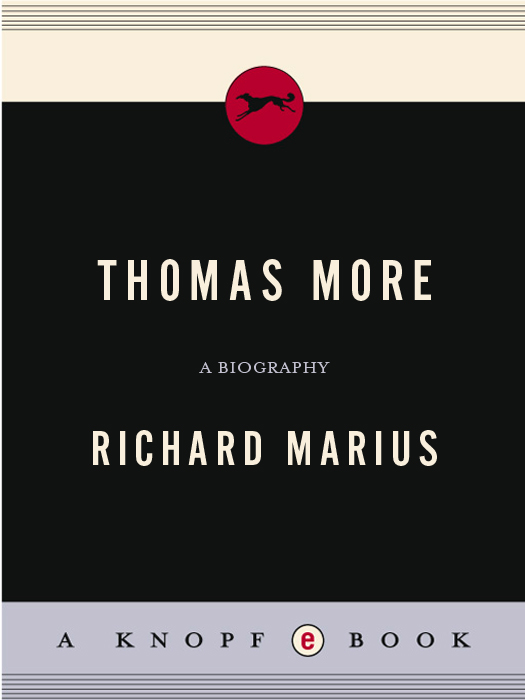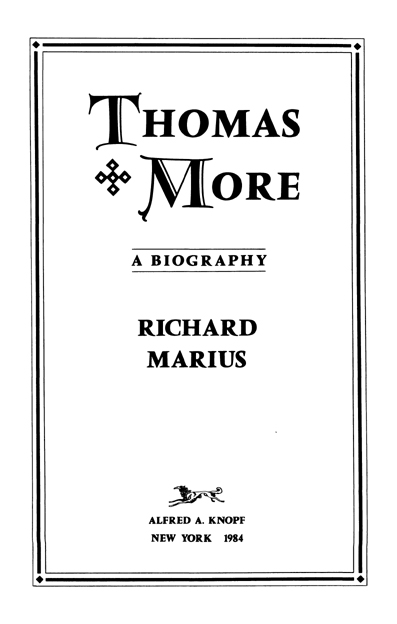Richard Marius - Thomas More
Here you can read online Richard Marius - Thomas More full text of the book (entire story) in english for free. Download pdf and epub, get meaning, cover and reviews about this ebook. year: 2013, publisher: Knopf Doubleday Publishing Group, genre: Art. Description of the work, (preface) as well as reviews are available. Best literature library LitArk.com created for fans of good reading and offers a wide selection of genres:
Romance novel
Science fiction
Adventure
Detective
Science
History
Home and family
Prose
Art
Politics
Computer
Non-fiction
Religion
Business
Children
Humor
Choose a favorite category and find really read worthwhile books. Enjoy immersion in the world of imagination, feel the emotions of the characters or learn something new for yourself, make an fascinating discovery.

- Book:Thomas More
- Author:
- Publisher:Knopf Doubleday Publishing Group
- Genre:
- Year:2013
- Rating:3 / 5
- Favourites:Add to favourites
- Your mark:
Thomas More: summary, description and annotation
We offer to read an annotation, description, summary or preface (depends on what the author of the book "Thomas More" wrote himself). If you haven't found the necessary information about the book — write in the comments, we will try to find it.
He gives us More the boyhis London childhood, he deep respect for his father, who rose from a tradesmans background to become a judge of the highest court in the land (a council of fathers was to rule Mores kingdom of Utopia) . . . More the youthsent at about age twelve to serve in the household of the powerful and political Bishop Morton, later struggling to choose between the priesthood and the lures of secular life: marriage and a career in the great world More the Londoner, the city manlawyer, graduate of the Inns of Court, member of the rising middle class with its drive for an achievement and position.
We see More the humanist man of letter as Marius treats in full his friendship with Erasmus; his now controversial History of Richard III, from which Shakespeares Richard derives; and the originals and meanings of his most famous work, Utopia. More the family man is reveal in his relationship with his father, his two wives, and his children as far more complex than the sanctified image of legend.
Marius explore Mores public career as Lord Chancellor, as champion of the Catholic church, and finally as martyr to the old faith. He shows us a man who, although he hated and feared tyrants, always believes that authority as a source of order was necessary to the public gooda man who as royal councilor and Lord Chancellor upheld his king until the very moment when, in response to Henrys final tyranny, he chose to die the Kings good servant, but Gods first. Marius also demonstrates that it was the centuries-old authority of the Catholic Church that More revered; that he was as suspicious of paper supremacy as of any tyranny.
The man Marius ultimately reveals is one more passionate and driven (in his family life, his convictions, his persecution of heretics) than the serene hero of A Man For All Seasons. But he is also a man possessed of such wit, integrity and charm that he was loved not only by his family but by almost everyone who knew him. It is the special triumph of this biography that with its rare combination of impeccable scholarship and narrative power, we are brought into the presence of a whole person with all his flaws and virtues, and that by the time More meets his death, he has become familiar and important to us not merely as a historical figure but also as a human being.
Richard Marius: author's other books
Who wrote Thomas More? Find out the surname, the name of the author of the book and a list of all author's works by series.


